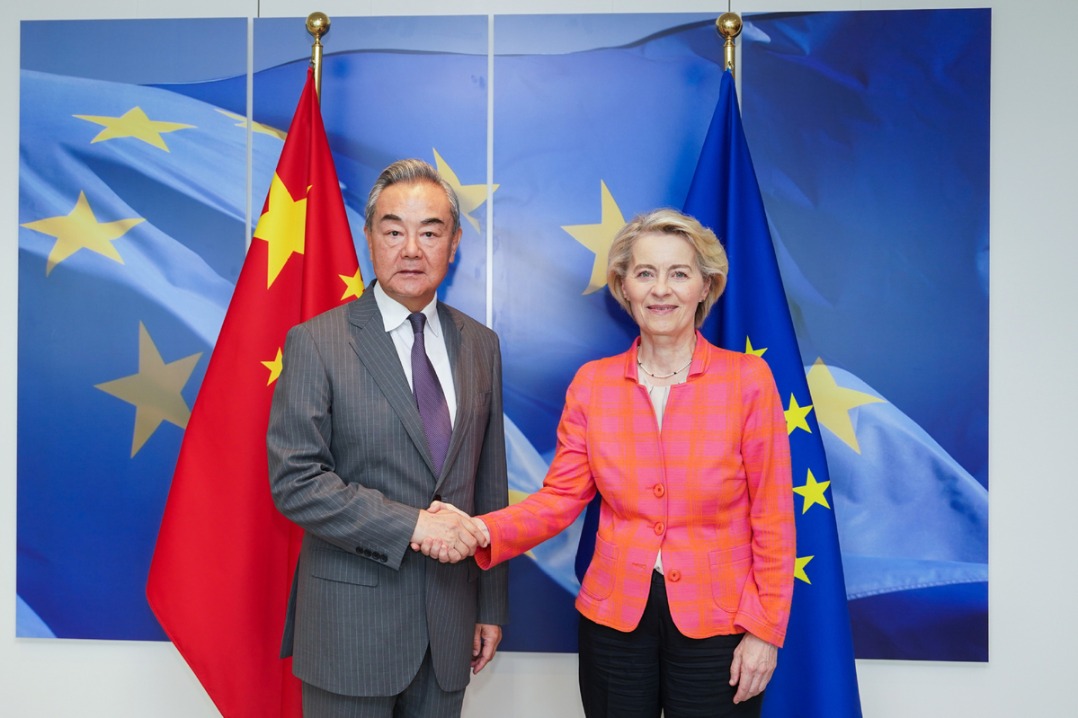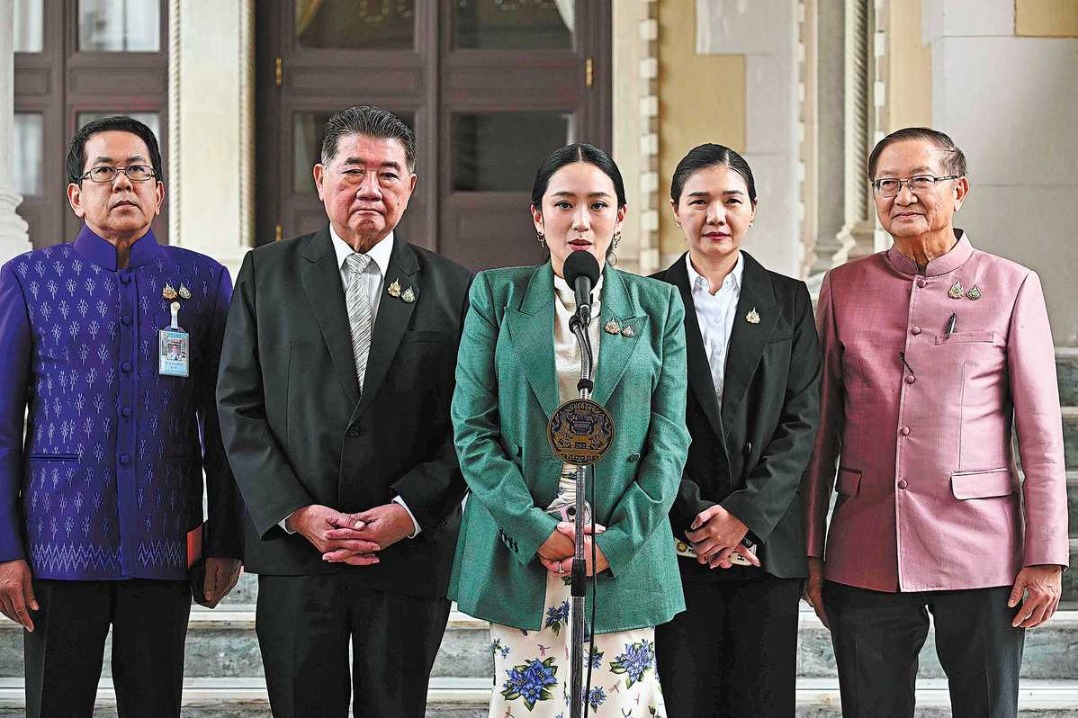EU to let members use carbon credits to meet goals


The European Union's 27 member nations could soon be using carbon credits purchased from developing nations to hit their emissions goals.
The bloc's executive branch, the European Commission, suggested the idea on Wednesday, during discussion about the EU's legally binding climate target for 2040, which is likely to be 90 percent less than its 1990 greenhouse gas emissions level.
Member nations will make a final decision on the carbon credits idea, and on the overall target before mid-September.
The bloc said in its draft legislation that the 2040 target would help keep it on course to hit its core climate ambition of achieving net zero emissions by 2050.
If approved, it will be the first time the EU has allowed nations to purchase carbon credits from developing countries to off set their pollution. The change calls for the credits to be used to negate no more than 3 percent of countries' targets.
The move was championed by the Czech Republic, France, Germany, Italy, and Poland and means EU nations with large industrial sectors that are struggling to lower emissions will be able to continue polluting, as long as they send money to less industrialized countries.
The draft legislation calls for the EU nations to make carbon credit purchases through a United Nations-supported marketplace.
Qin Yan, principal analyst at Clear-Blue Markets in Norway, said the EU's proposal of a 90 percent climate target by 2040"is still quite ambitious, demonstrating the EU's commitment to the Green Deal and its goal of achieving climate neutrality".
Qin said the EU's overall economy, and especially that of its industrial sectors, is "facing headwinds from the complex global geopolitical situation "and countries cannot make all of the cuts that are required.
"Thus, the proposal to allow the use of a certain number of international off sets to fulfill the EU's climate goals reflects a pragmatic approach to balancing decarbonization and competitiveness," Qin said, noting that, as China strengthens its carbon market and becomes more active in global climate diplomacy, the EU's climate goals will "create more opportunities for collaboration between the EU and China regarding carbon pricing under the Paris Agreement".
Nations will, however, likely not be able to use carbon credits for several years.
The EU will propose legislation "setting robust and high-integrity criteria and standards, and conditions on origin, timing and use of such credits", the Reuters news agency said.
Carbon credits are generated by projects that reduce carbon emissions, such as forest restoration initiatives, and investment in such programs by polluters is seen as a way for them to off set some of the damage they have done.
The EU also decided on Wednesday to give member nations more flexibility in deciding which sectors of their economies should contribute the most toward their 2040 goals.
Zhang Zhouxiang in Brussels contributed to the story.

































